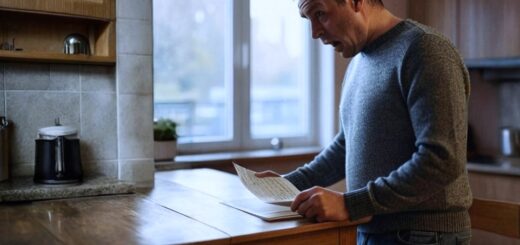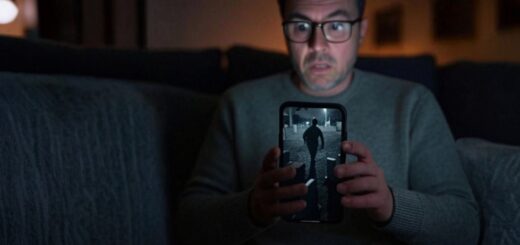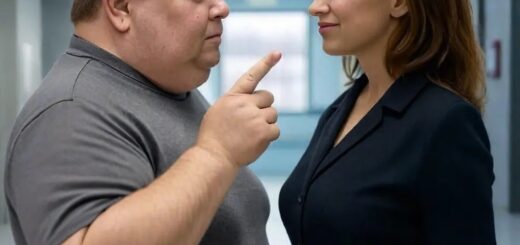You ruined our lives, get out!» my whole family said. So, I just left. A month later, I received 50+ missed calls. Now they know…
But I can ask what you want, not what you think you should want or what your family wants you to want. What do you, Melissa Anderson, truly want for your life? The answer came with unexpected clarity. Peace.
I want peace. The rest of the week passed in a whirlwind of activity. I arranged with my company to transfer to the Seattle office, effective immediately.
I sold most of my furniture to a college student moving into her first apartment. I donated clothes and books I no longer needed. I packed my car with the remainder of my possessions, surprising myself with how little I actually wanted to take into my new life.
On my final night in Portland, I sat at my now empty dining table and wrote a letter. Not a lengthy explanation or accusation, just a simple statement. I’ve accepted that in your minds, I will always be to blame for everything that goes wrong.
I can’t change that perception, but I can remove myself from it. Please don’t try to contact me. I wish you all well in finding whatever it is you’re looking for.
Melissa. I addressed an envelope to my parents’ house, but included no return address or indication of where I was going. After a moment’s hesitation, I added a second sheet of paper with Dr. Miles’s contact information, in case any of them ever genuinely wanted to understand the family dynamic from a professional perspective.
I doubted they would use it, but it felt important to leave that door slightly ajar. The following morning, I mailed the letter, turned in my apartment keys, and loaded the last few items into my car. As I drove north toward Seattle and away from the only home I’d ever known, I felt a complicated mixture of grief, fear, and something that took me several miles to identify.
Relief. For the first time in 27 years, I was free from the expectation of being the perfect scapegoat, free from the burden of absorbing my family’s displaced blame, free to discover who Melissa Anderson might become when not constrained by the role she’d been assigned since childhood. It was terrifying.
It was liberating. It was necessary. And as the Welcome to Washington sign appeared on the horizon, I allowed myself to feel something I hadn’t experienced in a very long time.
Hope. Seattle greeted me with rain, which felt appropriate somehow. As I drove through unfamiliar streets with my windshield wipers keeping time, the reality of what I’d done began to sink in.
I had no family to call, no friends in this new city, just a job transfer and a temporary Airbnb booking for the next two weeks while I searched for a permanent place. The Airbnb was a small studio in Capitol Hill, sparsely furnished but clean. After unloading my few possessions, I sat on the edge of the bed and experienced my first moment of doubt.
Had I overreacted? Was cutting off all contact too extreme? I reached for my phone instinctively, then remembered I’d already changed my number. There was no going back, at least not easily. The finality of that thought sent me into a panic attack, my first in years.
For 20 minutes, I sat on the floor with my back against the wall, struggling to breathe, convinced I’d made a terrible mistake. When the attack finally subsided, I did what I always did in moments of crisis. I made a plan.
First priority was setting up my remote work arrangement until the Seattle office was ready for me. Second was finding an apartment. Third was establishing a routine, something to anchor me in this new reality.
The next morning, I woke early and walked to a nearby coffee shop with my laptop. The barista, a woman with a sleeve of colorful tattoos and a kind smile, noticed me struggling with the Wi-Fi password. First time here? She asked, coming around the counter to help.
First time in Seattle, actually, I admitted. Welcome. I’m Sophia, by the way.
Melissa. Well, Melissa, any friend of Cafe Vida is a friend of mine. What brings you to our rainy city? I hesitated, unsure how to answer without revealing too much to a stranger.
Work transfer. Fresh start. Sophia nodded as if this explained everything.
Best place for it. Seattle’s full of transplants reinventing themselves. That’s simple.
Interaction, barely five minutes long, became my first connection in my new city. I returned to the same coffee shop each morning, and Sophia always greeted me by name, eventually introducing me to her partner, Adam, and their friend group that gathered there on weekend mornings. My remote work arrangement with the marketing firm went smoothly.
Veronica arranged weekly video conferences to keep me connected to the team, and the Seattle office renovation was proceeding on schedule for a formal opening in three months. Finding an apartment proved more challenging. Seattle’s rental market was competitive, and without local references, I faced skepticism from several property managers.
After two weeks of searching, I finally found a small one-bedroom in a converted industrial building in Ballard. The exposed brick walls and large windows sold me immediately, despite the slightly higher than planned rent. Moving in with my minimal possessions highlighted how much I’d left behind.
My previous apartment had been filled with furniture and decorations chosen to please my family during their infrequent visits. This new space was a blank canvas, waiting for me to define it on my terms alone. I found this simultaneously liberating and paralyzing.
Standing in an empty home goods store, I couldn’t decide on something as simple as what color towels to buy. For so long, I’d suppressed my own preferences to avoid criticism. What did I actually like? What represented me? These questions extended beyond home decor into every aspect of my life….
























